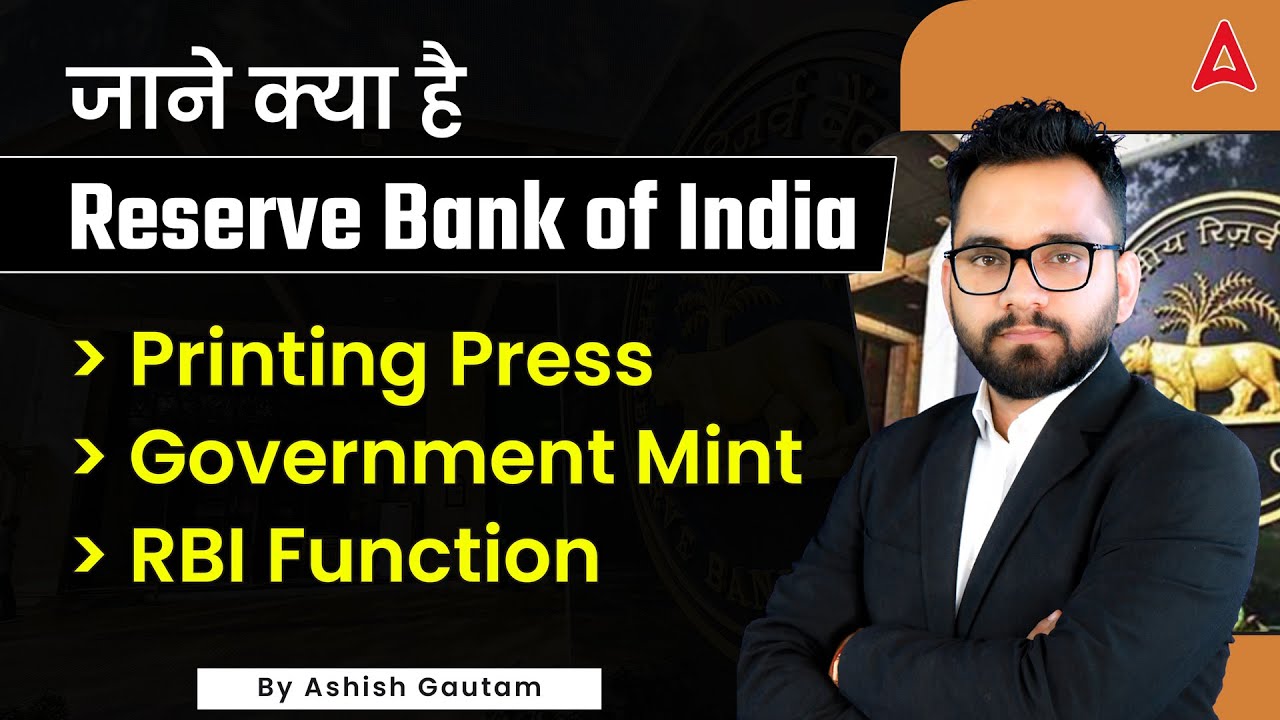How Will The RBI Dividend Payout Affect The Stock Market? | Share Market News
Summary
TLDRThe NDTV Profit Morning show discusses the Reserve Bank of India's (RBI) healthy balance sheet and its implications for the economy and government fiscal deficit targets. Experts analyze the RBI's bumper surplus and its potential impact on the bond market, with insights on the fixed income market's response to the large dividend payout. The conversation covers the importance of the RBI's role as the government's banker and debt manager, asset revaluation, and the outlook for rate cuts and liquidity in the market.
Takeaways
- 🏦 The Reserve Bank of India (RBI) has a healthy balance sheet with a significant surplus, which it is transferring to the government.
- 💡 The RBI's role is compared to a 'stingy wife' in relation to the government, which is an 'extravagant husband' always asking for funds.
- 📈 The surplus is attributed to the reevaluation of assets such as foreign currency assets and gold, which make up a large portion of the RBI's total assets.
- 💼 The RBI's surplus is beneficial for the government's fiscal deficit targets and could support national objectives and developmental functions.
- 📊 The large dividend payout by the RBI is expected to positively impact the fixed income market and potentially lead to a decrease in bond yields.
- 🤔 There is a call for caution in interpreting the RBI's surplus as the final budget post-elections will provide a clearer picture of fiscal consolidation.
- 💧 The immediate impact on market liquidity is not expected as the surplus adds to government coffers, and spending will determine liquidity changes.
- 🛠️ The government's capital expenditure (capex) priorities are clear, and market reactions will depend on whether the funds are used for spending or fiscal consolidation.
- 🌐 The inclusion of India in the JP Morgan Bond Index and the potential for foreign portfolio investors (FPIs) to resume frontloading are mentioned.
- 📉 Despite the current attractiveness of duration in the bond market, Indian investors have not seen significant M2M gains due to the flat yield curve over the past two years.
- 🔮 Looking forward, there is an expectation of rate cuts which could eventually lead to capital gains for bond investors, but caution is advised due to ongoing geopolitical and economic risks.
Q & A
What is the significance of the RBI's balance sheet health for the economy?
-The health of the RBI's balance sheet is critical for the functioning of the economy. It indicates that the central bank is in a strong financial position, which is evidenced by its ability to provide a substantial surplus to the government.
How does the RBI's surplus impact the government's fiscal deficit targets?
-The RBI's surplus can help the government meet its fiscal deficit targets by providing additional funds, which can be used for developmental and other national objectives without increasing the fiscal burden.
What is the relationship between the RBI and the government in terms of financial management?
-The RBI acts as the banker and debt manager for the government. It is akin to a relationship between a frugal wife and a spendthrift husband, where the RBI provides funds when necessary for the government's needs.
What factors contributed to the RBI's bumper reserve?
-The bumper reserve is due to the reevaluation of assets such as foreign currency assets and gold, which constitute a significant portion of the RBI's total assets. Additionally, domestic assets like penalties on banks have also contributed to the increase in asset size.
How does the RBI's dividend payout to the government affect the fixed income market?
-A large RBI dividend can positively impact the fixed income market by providing a sense of fiscal consolidation and potentially leading to a decrease in bond yields, making bonds more attractive to investors.
What is the potential impact of the RBI's dividend on market liquidity?
-While the dividend itself does not immediately change market liquidity, it adds to the government's coffers, which could lead to increased spending and, consequently, an impact on market liquidity over time.
What is the current stance of the bond market regarding the RBI's dividend announcement?
-The bond market views the dividend positively as it signals fiscal consolidation and potential rate cuts. However, it is waiting for the final budget post-elections to determine the trajectory of rates and the government's spending plans.
How should investors approach bond investments in light of the RBI's decision?
-Investors should consider the current environment of low inflation and potential rate cuts as favorable for bond investments. However, they should also be mindful of broader macroeconomic risks and the government's spending plans.
What is the potential impact of the RBI's dividend on private capital expenditure?
-The additional funds provided by the RBI's dividend could reduce the crowding out effect on private sector expenditure, allowing the private sector to pursue expansion plans without being constrained by government spending.
How might the government's use of the RBI's dividend influence the bond market's reaction?
-If the government uses the dividend for capital expenditure, which can boost GDP growth, the bond market may react positively. However, the market's response will also depend on the government's overall fiscal consolidation path and spending plans.
What is the implication of the RBI's dividend for foreign portfolio investors (FPIs)?
-The RBI's dividend could encourage FPIs to resume front-loading investments in the Indian bond market, especially if the government's spending plans align with market expectations and contribute to economic growth.
Outlines

هذا القسم متوفر فقط للمشتركين. يرجى الترقية للوصول إلى هذه الميزة.
قم بالترقية الآنMindmap

هذا القسم متوفر فقط للمشتركين. يرجى الترقية للوصول إلى هذه الميزة.
قم بالترقية الآنKeywords

هذا القسم متوفر فقط للمشتركين. يرجى الترقية للوصول إلى هذه الميزة.
قم بالترقية الآنHighlights

هذا القسم متوفر فقط للمشتركين. يرجى الترقية للوصول إلى هذه الميزة.
قم بالترقية الآنTranscripts

هذا القسم متوفر فقط للمشتركين. يرجى الترقية للوصول إلى هذه الميزة.
قم بالترقية الآنتصفح المزيد من مقاطع الفيديو ذات الصلة

Why does RBI Transfer its Surplus to Government? | Explained

CH 7 U 3 Revision Lec 2 | B ECO | CA FOUNDATION PAPER 4

India Inclusion in JP Morgan Bond Index, $25-30 Bn Flow Expected | What it Means? | Economy | UPSC

‘There’s a fear in India that if it opens up, imports will flood in. But they are coming anyway’

Reserve Bank of India (RBI) Kya Hai? | Printing Press, Government Mint, RBI Function By Ashish Sir

Budget 2024 PM Modi's BIG mistake | Budget 2024 explained | Abhi and Niyu
5.0 / 5 (0 votes)
